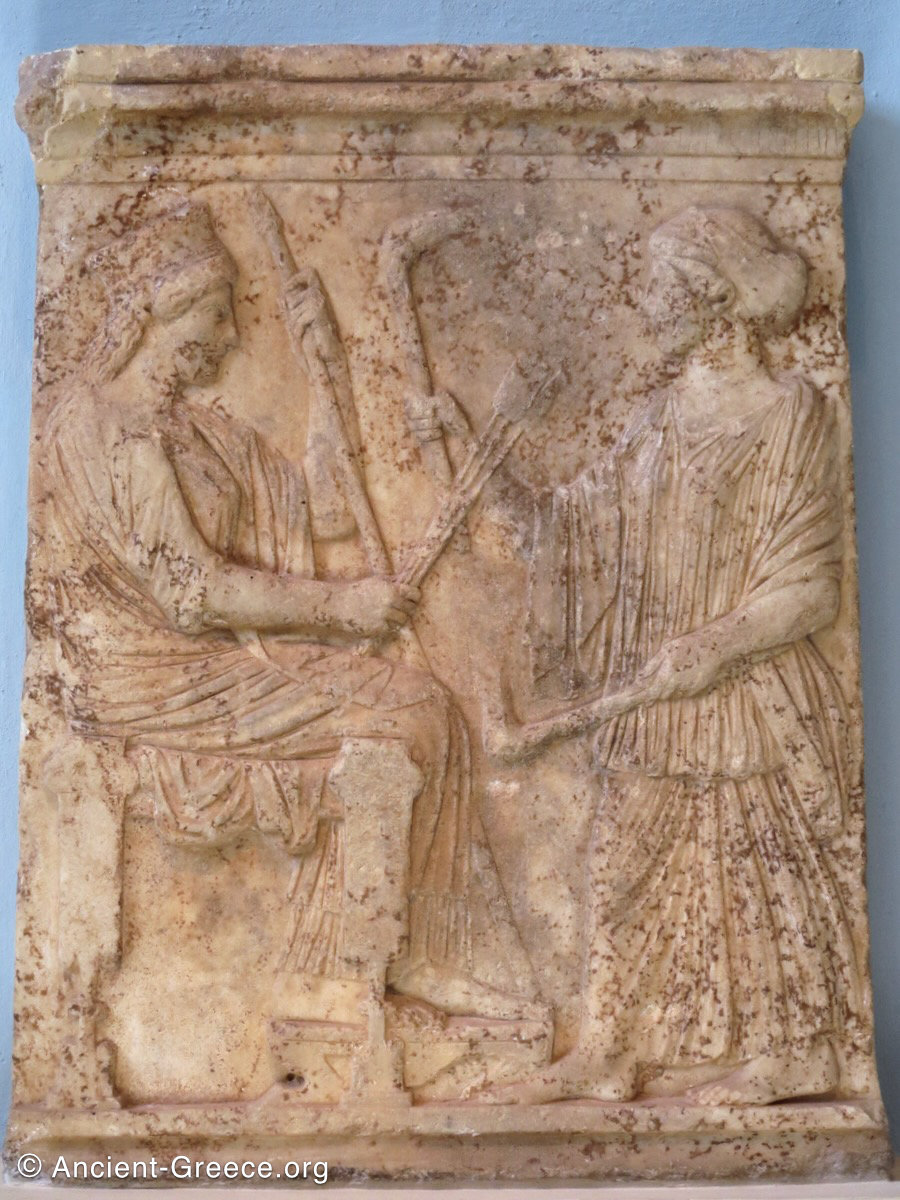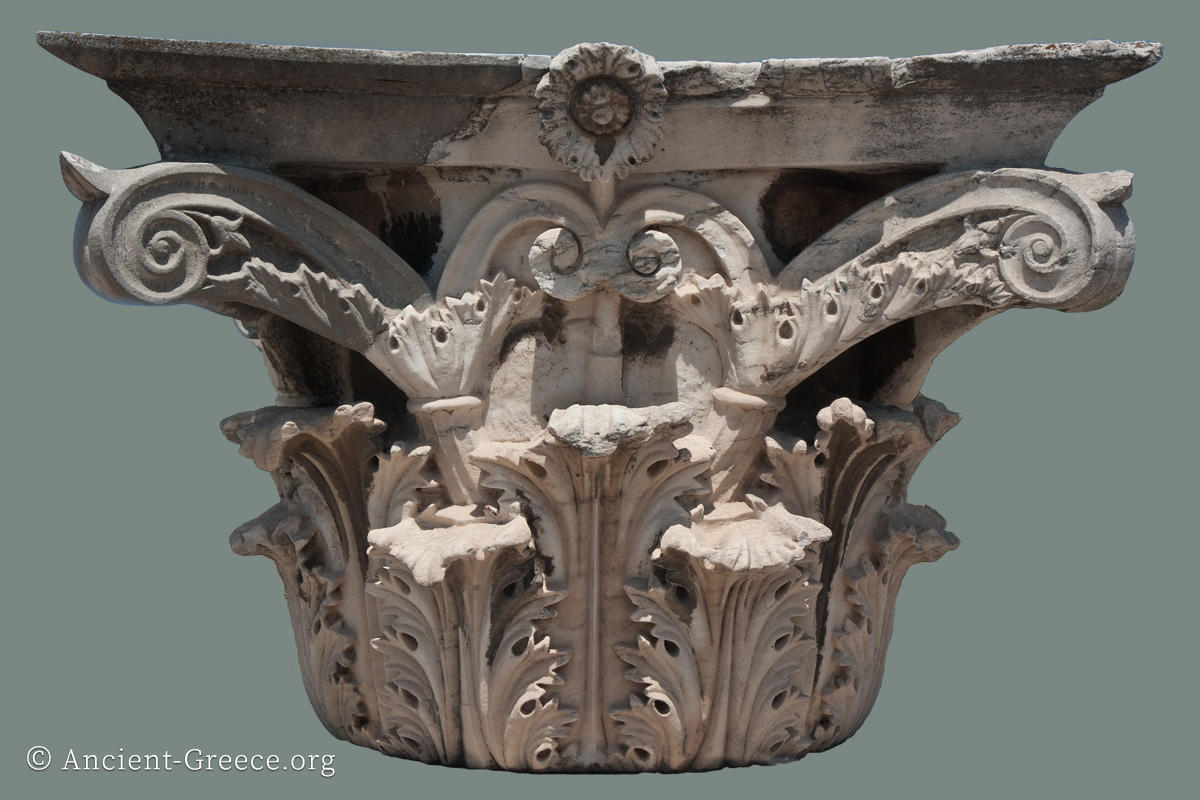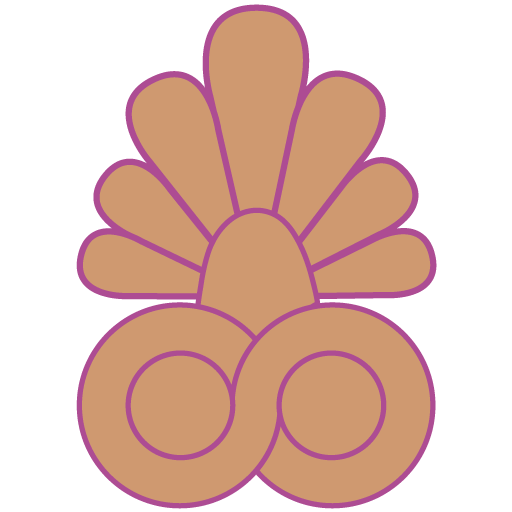
On this page:
Godesss of the crop
As the domain of men was hunting and gathering, the women took to plowing and scattering seeds to reap harvest. A female deity would best understand a woman’s work, and Demeter was born to worship.
She was the goddess of the crop, and the sacrifices made to her were not bloody or cruel, but consisted of any humble act that resulted in a plentiful farm. She was ever-thought of at the time of feasting or harvesting.
Demeter had one daughter—Persephone—a child of spring. When Persephone was lost to Demeter, snatched away by the Lord of the Underworld, Demeter withheld her gifts to the earth and turned the land into a frozen desert. However, this barren spell only transpired four months out of the year when Persephone must don the persona as maiden of the underworld and sit by her husband Hades.
_______________________________
Demeter (from Ge-meter, earth-mother) was the daughter of Cronus and Rhea.[24] She represented that portion of Gæa (the whole solid earth) which we call the earth’s crust, and which produces all vegetation. As goddess of agriculture, field-fruits, plenty, and productiveness, she was the sustainer of material life, and was therefore a divinity of great importance. When ancient Gæa lost, with Uranus, her position as a ruling divinity, she abdicated her sway in favour of her daughter Rhea, who henceforth inherited the powers which her mother had previously possessed, receiving in her place the honour and worship of mankind. In a very old poem Gæa is accordingly described as retiring to a cavern in the bowels [51]of the earth, where she sits in the lap of her daughter, slumbering, moaning, and nodding for ever and ever.
It is necessary to keep clearly in view the distinctive difference between the three great earth-goddesses Gæa, Rhea, and Demeter. Gæa represents the earth as a whole, with its mighty subterranean forces; Rhea is that productive power which causes vegetation to spring forth, thus sustaining men and animals; Demeter, by presiding over agriculture, directs and utilizes Rhea’s productive powers. But in later times, when Rhea, like other ancient divinities, loses her importance as a ruling deity, Demeter assumes all her functions and attributes, and then becomes the goddess of the life-producing and life-maintaining earth-crust. We must bear in mind the fact that man in his primitive state knew neither how to sow nor how to till the ground; when, therefore, he had exhausted the pastures which surrounded him he was compelled to seek others which were as yet unreaped; thus, roaming constantly from one place to another, settled habitations, and consequently civilizing influences, were impossible. Demeter, however, by introducing a knowledge of agriculture, put an end, at once and for ever, to that nomadic life which was now no longer necessary.
The favour of Demeter was believed to bring mankind rich harvests and fruitful crops, whereas her displeasure caused blight, drought, and famine. The island of Sicily was supposed to be under her especial protection, and there she was regarded with particular veneration, the Sicilians naturally attributing the wonderful fertility of their country to the partiality of the goddess.
Demeter is usually represented as a woman of noble [52] bearing and majestic appearance, tall, matronly, and dignified, with beautiful golden hair, which falls in rippling curls over her stately shoulders, the yellow locks being emblematical of the ripened ears of corn. Sometimes she appears seated in a chariot drawn by winged dragons, at others she stands erect, her figure drawn up to its full height, and always fully draped; she bears a sheaf of wheat-ears in one hand and a lighted torch in the other. The wheat-ears are not unfrequently replaced by a bunch of poppies, with which her brows are also garlanded, though sometimes she merely wears a simple riband in her hair.
Mother of Persephone
Demeter, as the wife of Zeus, became the mother of Persephone (Proserpine), to whom she was so tenderly attached that her whole life was bound up in her, and she knew no happiness except in her society. One day, however, whilst Persephone was gathering flowers in a meadow, attended by the ocean-nymphs, she saw to her surprise a beautiful narcissus, from the stem of which sprang forth a hundred blossoms. Drawing near to examine this lovely flower, whose exquisite scent perfumed the air, she stooped down to gather it, suspecting no evil, when a yawning abyss opened at her feet, and Aïdes, the grim ruler of the lower world, appeared from its depths, seated in his dazzling chariot drawn by four black horses. Regardless of her tears and the shrieks of her female attendants, Aïdes seized the terrified maiden, and bore her away to the gloomy realms over which he reigned in melancholy grandeur. Helios, the all-seeing sun-god, and Hecate, a mysterious and very ancient divinity, alone heard her cries for aid, but were powerless to help her.
When Demeter became conscious of her loss her grief was intense, and she refused to be comforted. She knew not where to seek for her child, but feeling that repose and inaction were impossible, she set out on her weary search, taking with her two torches which she lighted in the flames of Mount Etna to guide her on her way. For nine long days and nights she wandered on, inquiring of every one she met for tidings of her child. [53]But all was in vain! Neither gods nor men could give her the comfort which her soul so hungered for. At last, on the tenth day, the disconsolate mother met Hecate, who informed her that she had heard her daughter’s cries, but knew not who it was that had borne her away. By Hecate’s advice Demeter consulted Helios, whose all-seeing eye nothing escapes, and from him she learnt that it was Zeus himself who had permitted Aïdes to seize Persephone, and transport her to the lower world in order that she might become his wife. Indignant with Zeus for having given his sanction to the abduction of his daughter, and filled with the bitterest sorrow, she abandoned her home in Olympus, and refused all heavenly food.
Disguising herself as an old woman, she descended upon earth, and commenced a weary pilgrimage among mankind. One evening she arrived at a place called Eleusis, in Attica, and sat down to rest herself near a well beneath the shade of an olive-tree. The youthful daughters of Celeus, the king of the country, came with their pails of brass to draw water from this well, and seeing that the tired wayfarer appeared faint and dispirited, they spoke kindly to her, asking who she was, and whence she came. Demeter replied that she had made her escape from pirates, who had captured her, and added that she would feel grateful for a home with any worthy family, whom she would be willing to serve in a menial capacity. The princesses, on hearing this, begged Demeter to have a moment’s patience while they returned home and consulted their mother, Metaneira. They soon brought the joyful intelligence that she was desirous of securing her services as nurse to her infant son Demophoon, or Triptolemus.
When Demeter arrived at the house a radiant light suddenly illumined her, which circumstance so overawed Metaneira that she treated the unknown stranger with the greatest respect, and hospitably offered her food and drink. But Demeter, still grief-worn and dejected, refused her friendly offers, and held herself apart from the social board. At length, however, the maid-servant Iambe succeeded, by means [54]of playful jests and merriment, in somewhat dispelling the grief of the sorrowing mother, causing her at times to smile in spite of herself, and even inducing her to partake of a mixture of barley-meal, mint, and water, which was prepared according to the directions of the goddess herself.
Time passed on, and the young child throve amazingly under the care of his kind and judicious nurse, who, however, gave him no food, but anointed him daily with ambrosia, and every night laid him secretly in the fire in order to render him immortal and exempt from old age. But, unfortunately, this benevolent design on the part of Demeter was frustrated by Metaneira herself, whose curiosity, one night, impelled her to watch the proceedings of the mysterious being who nursed her child. When to her horror she beheld her son placed in the flames, she shrieked aloud. Demeter, incensed at this untimely interruption, instantly withdrew the child, and throwing him on the ground, revealed herself in her true character.
The bent and aged form had vanished, and in its place there stood a bright and beauteous being, whose golden locks streamed over her shoulders in richest luxuriance, her whole aspect bespeaking dignity and majesty. She told the awe-struck Metaneira that she was the goddess Demeter, and had intended to make her son immortal, but that her fatal curiosity had rendered this impossible, adding, however, that the child, having slept in her arms, and been nursed on her lap, should ever command the respect and esteem of mankind. She then desired that a temple and altar should be erected to her on a neighbouring hill by the people of Eleusis, promising that she herself would direct them how to perform the sacred rites and ceremonies, which should be observed in her honour. With these words she took her departure never to return.
Obedient to her commands, Celeus called together a meeting of his people, and built the temple on the spot which the goddess had indicated. It was soon completed, and Demeter took up her abode in it, but her heart was still sad for the loss of her daughter, and the whole world felt the influence of her grief and dejection. This was [55]indeed a terrible year for mankind. Demeter no longer smiled on the earth she was wont to bless, and though the husbandman sowed the grain, and the groaning oxen ploughed the fields, no harvest rewarded their labour. All was barren, dreary desolation. The world was threatened with famine, and the gods with the loss of their accustomed honours and sacrifices; it became evident, therefore, to Zeus himself that some measures must be adopted to appease the anger of the goddess.
He accordingly despatched Iris and many of the other gods and goddesses to implore Demeter to return to Olympus; but all their prayers were fruitless. The incensed goddess swore that until her daughter was restored to her she would not allow the grain to spring forth from the earth. At length Zeus sent Hermes, his faithful messenger, to the lower world with a petition to Aïdes, urgently entreating him to restore Persephone to the arms of her disconsolate mother. When he arrived in the gloomy realms of Aïdes, Hermes found him seated on a throne with the beautiful Persephone beside him, sorrowfully bewailing her unhappy fate. On learning his errand, Aïdes consented to resign Persephone, who joyfully prepared to follow the messenger of the gods to the abode of life and light.
Before taking leave of her husband, he presented to her a few seeds of pomegranate, which in her excitement she thoughtlessly swallowed, and this simple act, as the sequel will show, materially affected her whole future life. The meeting between mother and child was one of unmixed rapture, and for the moment all the past was forgotten. The loving mother’s happiness would now have been complete had not Aïdes asserted his rights. These were, that if any immortal had tasted food in his realms they were bound to remain there for ever. Of course the ruler of the lower world had to prove this assertion. This, however, he found no difficulty in doing, as Ascalaphus, the son of Acheron and Orphne, was his witness to the fact.[25] Zeus, pitying the disappointment of Demeter at finding [56]her hopes thus blighted, succeeded in effecting a compromise by inducing his brother Aïdes to allow Persephone to spend six months of the year with the gods above, whilst during the other six she was to be the joyless companion of her grim lord below.
Accompanied by her daughter, the beautiful Persephone, Demeter now resumed her long-abandoned dwelling in Olympus; the sympathetic earth responded gaily to her bright smiles, the corn at once sprang forth from the ground in fullest plenty, the trees, which late were sered and bare, now donned their brightest emerald robes, and the flowers, so long imprisoned in the hard, dry soil, filled the whole air with their fragrant perfume. Thus ends this charming story, which was a favourite theme with all the classic authors.
It is very possible that the poets who first created this graceful myth merely intended it as an allegory to illustrate the change of seasons; in the course of time, however, a literal meaning became attached to this and similar poetical fancies, and thus the people of Greece came to regard as an article of religious belief what, in the first instance, was nothing more than a poetic simile.
The Eleusinian Mysteries
In the temple erected to Demeter at Eleusis, the famous Eleusinian Mysteries were instituted by the goddess herself. It is exceedingly difficult, as in the case of all secret societies, to discover anything with certainty concerning these sacred rites. The most plausible supposition is that the doctrines taught by the priests to the favoured few whom they initiated, were religious truths which were deemed unfit for the uninstructed mind of the multitude. For instance, it is supposed that the myth of Demeter and Persephone was explained by the teachers of the Mysteries to signify the temporary loss which mother earth sustains every year when the icy breath of winter robs her of her flowers and fruits and grain.
It is believed that in later times a still deeper meaning was conveyed by this beautiful myth, viz., the doctrine of the immortality of the soul. The grain, which, as it were, remains dead for a time in the dark earth, only [57]to rise one day dressed in a newer and lovelier garb, was supposed to symbolize the soul, which, after death, frees itself from corruption, to live again under a better and purer form.
When Demeter instituted the Eleusinian Mysteries, Celeus and his family were the first to be initiated, Celeus himself being appointed high-priest. His son Triptolemus and his daughters, who acted as priestesses, assisted him in the duties of his sacred office. The Mysteries were celebrated by the Athenians every five years, and were, for a long time, their exclusive privilege. They took place by torchlight, and were conducted with the greatest solemnity.
In order to spread abroad the blessings which agriculture confers, Demeter presented Triptolemus with her chariot drawn by winged dragons, and, giving him some grains of corn, desired him to journey through the world, teaching mankind the arts of agriculture and husbandry.
Demeter exercised great severity towards those who incurred her displeasure. We find examples of this in the stories of Stellio and Eresicthon. Stellio was a youth who ridiculed the goddess for the eagerness with which she was eating a bowl of porridge, when weary and faint in the vain search for her daughter. Resolved that he should never again have an opportunity of thus offending, she angrily threw into his face the remainder of the food, and changed him into a spotted lizard.
Eresicthon, son of Triopas, had drawn upon himself the anger of Demeter by cutting down her sacred groves, for which she punished him with a constant and insatiable hunger. He sold all his possessions in order to satisfy his cravings, and was forced at last to devour his own limbs. His daughter Metra, who was devotedly attached to him, possessed the power of transforming herself into a variety of different animals. By this means she contrived to support her father, who sold her again and again each time she assumed a different form, and thus he dragged on a pitiful existence.
Ceres
The Roman Ceres is actually the Greek Demeter under another name, her attributes, worship, festivals, &c., being precisely identical.
The Romans were indebted to Sicily for this divinity, her worship having been introduced by the Greek colonists who settled there.
The Cerealia, or festivals in honour of Ceres, commenced on the 12th of April, and lasted several days.
From: Berens, E.M. The Myths and Legends of Ancient Greece and Rome. New York: Maynard, Merril, & Co., 1880. Text in the public domain.







